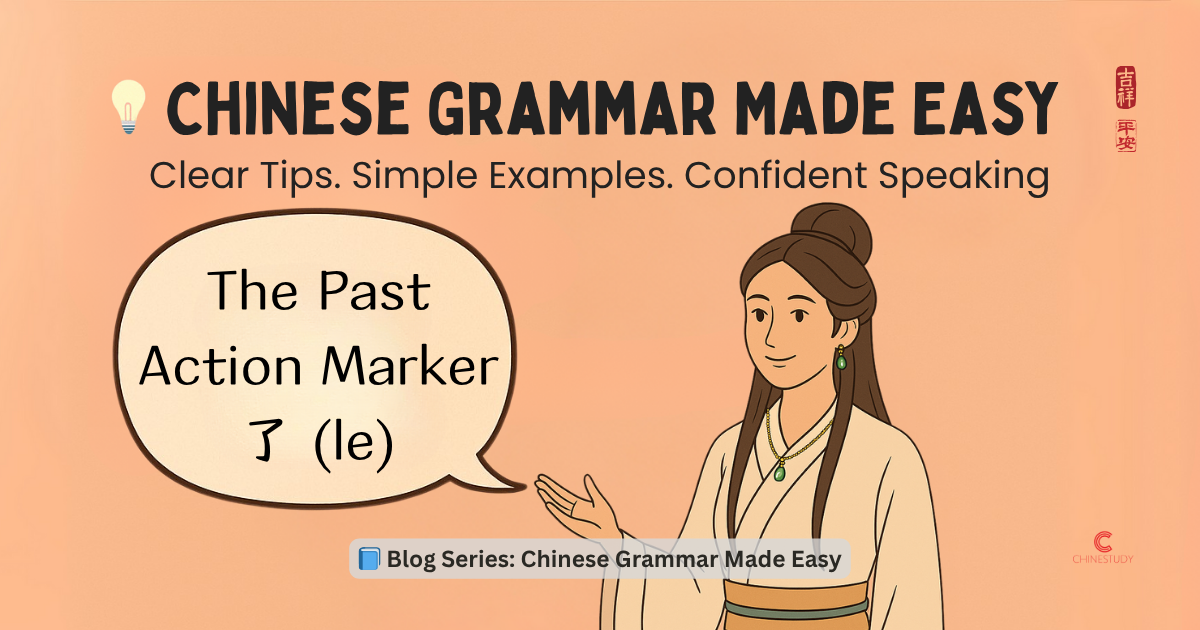
📝 How to use 了 (le) to talk about past actions in Chinese
Learn how to use 了 (le) to talk about past actions in Chinese. This beginner-friendly post explains how 了 works, with simple examples and common mistakes to avoid.
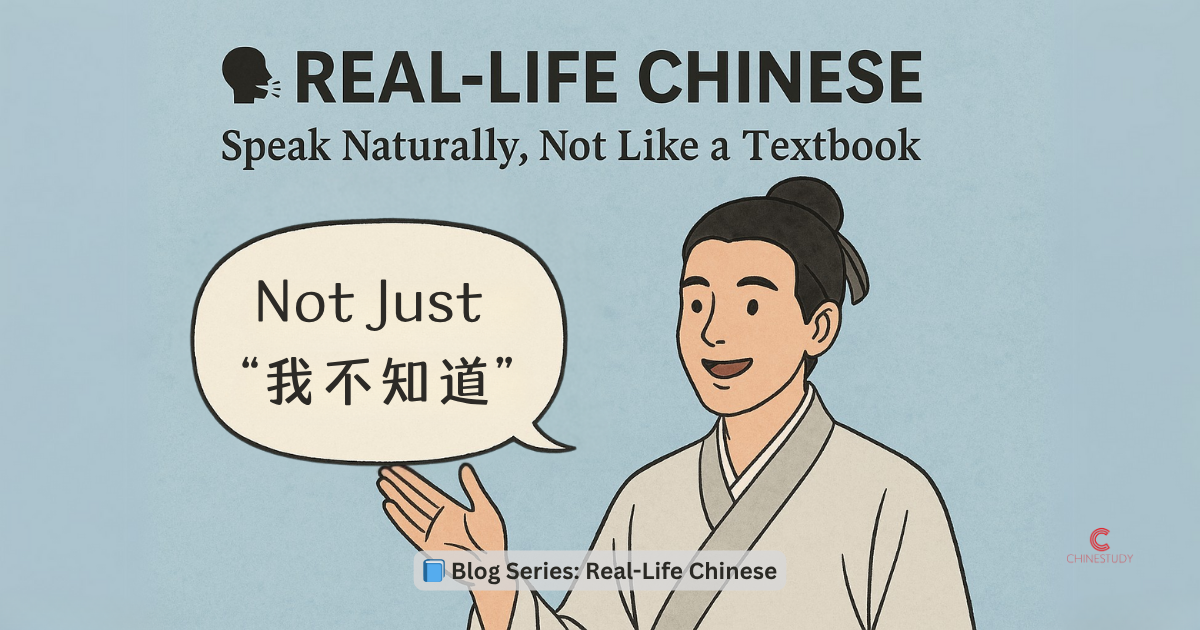
🗣️ How to Say “Let’s Wait and See” Naturally in Chinese — Not Just “我不知道”
In real conversations, Chinese people don’t always say “我不知道” to delay a plan. Learn natural phrases like “到时候再说” and “再看看吧” to sound polite, warm, and flexible — just like native speakers.
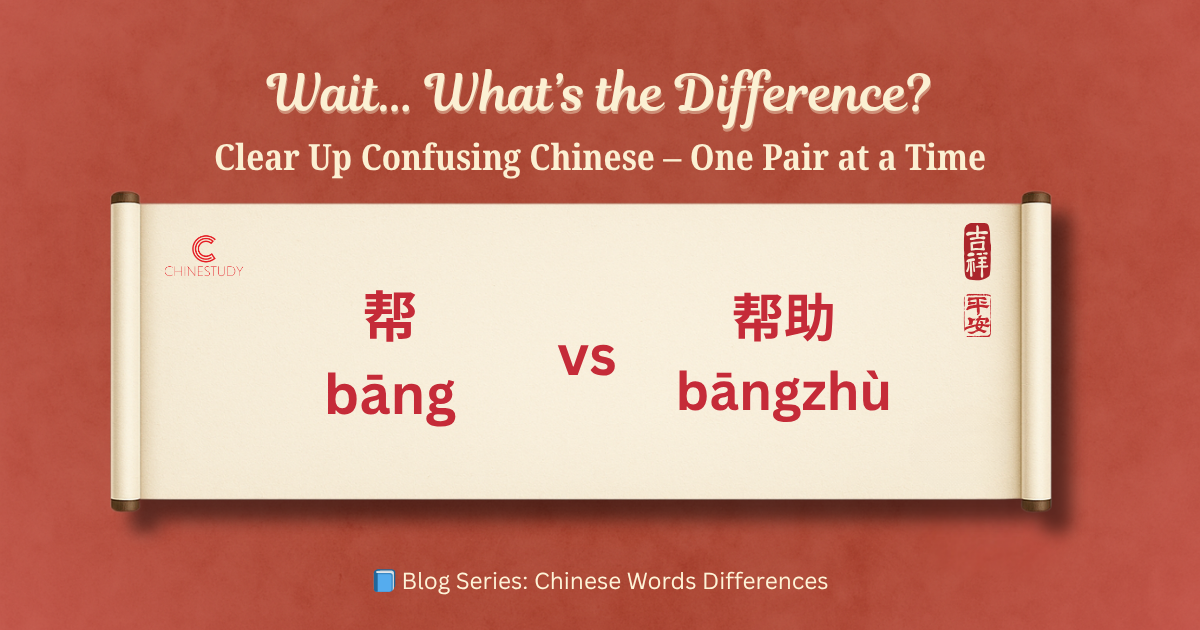
🧐 帮 bāng vs 帮助 bāngzhù – What’s the Difference?
帮 and 帮助 both mean “help,” but they aren’t always used the same way! Learn when to use each one naturally in Chinese, with clear rules, real examples, and a quick practice quiz.
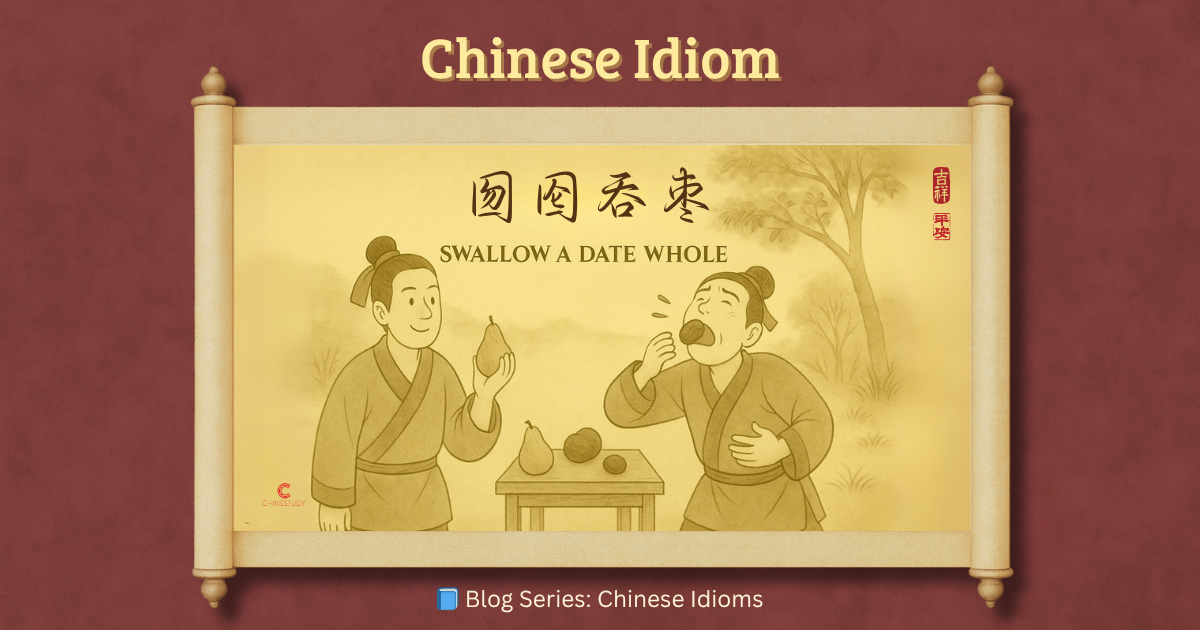
😵 囫囵吞枣 hú lún tūn zǎo – Swallowing the Date Whole
Learn the quirky tale behind 囫囵吞枣, an idiom that warns us not to absorb knowledge without thinking. Discover how a man’s strange way of eating dates became a lesson in critical learning.
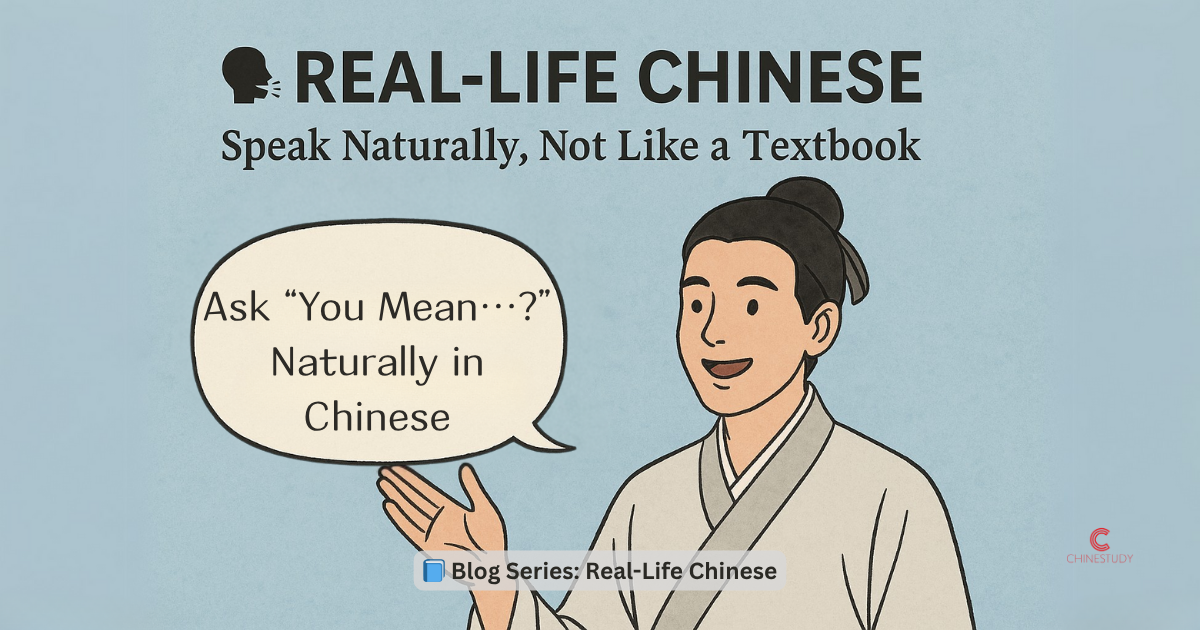
📝 How to Say “You Mean…?” Naturally in Chinese — Not Just “我不明白”
Want to clarify what someone just said? Don’t say “我不明白”! Use real-life Chinese phrases like “你的意思是…?” or “所以你是说…?” to sound more natural and polite.
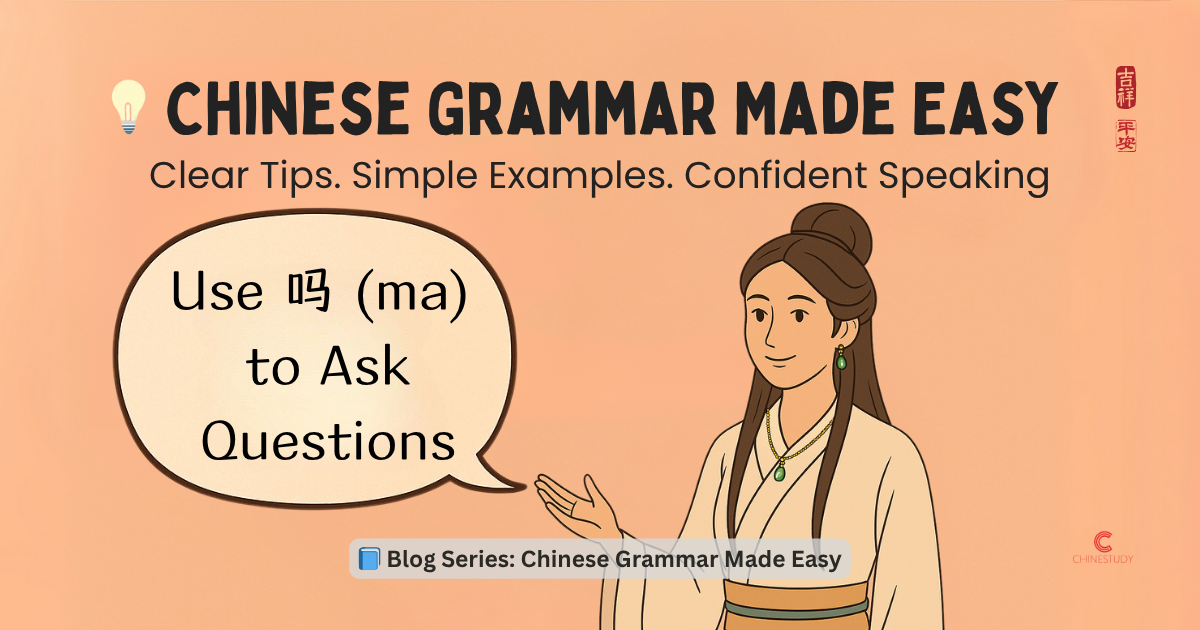
📝 How to Use 吗 (ma) in Chinese to Ask Questions Clearly
Learn how to use the question particle 吗 (ma) in Chinese. This tiny word turns any sentence into a yes-no question — no word order changes needed!

🗣️ How to Say “I’m Not Free” Without Sounding Cold — Not Just “我没空”
“我没空” is correct, but it can sound cold. In this post, you’ll learn how to say “I’m not available” more naturally with phrases like “最近挺忙的”, “改天吧”, and “看情况吧”.
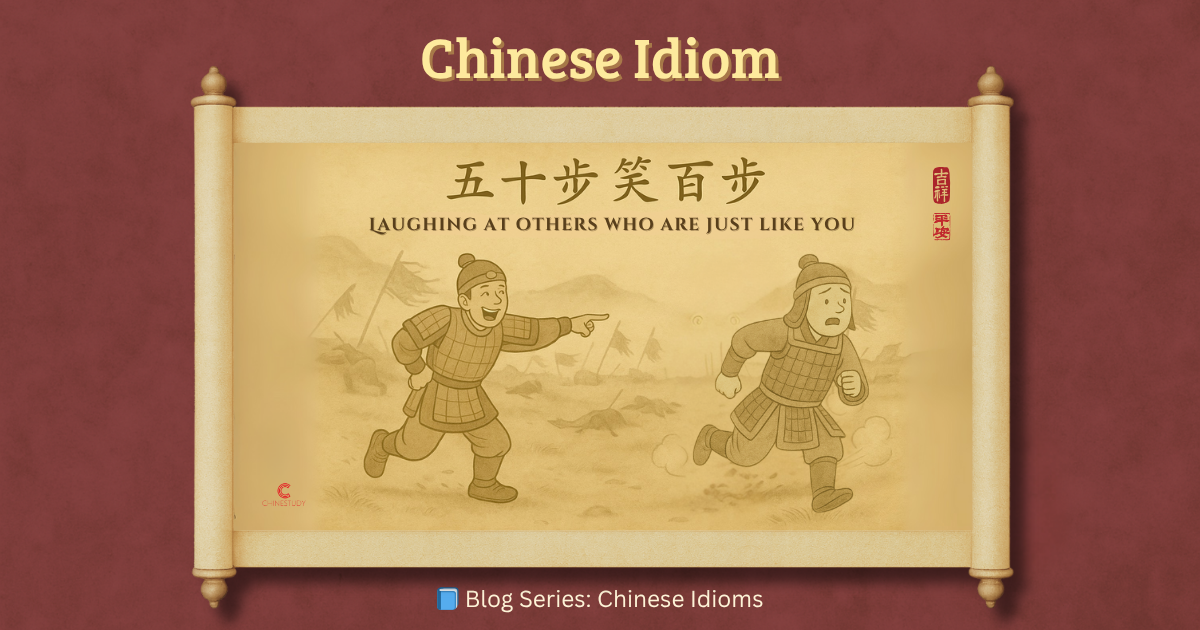
😅 五十步笑百步 wǔ shí bù xiào bǎi bù – The Pot Calling the Kettle Black
Learn the story behind 五十步笑百步 – how two retreating soldiers helped Mencius explain a powerful truth about self-awareness and hypocrisy.
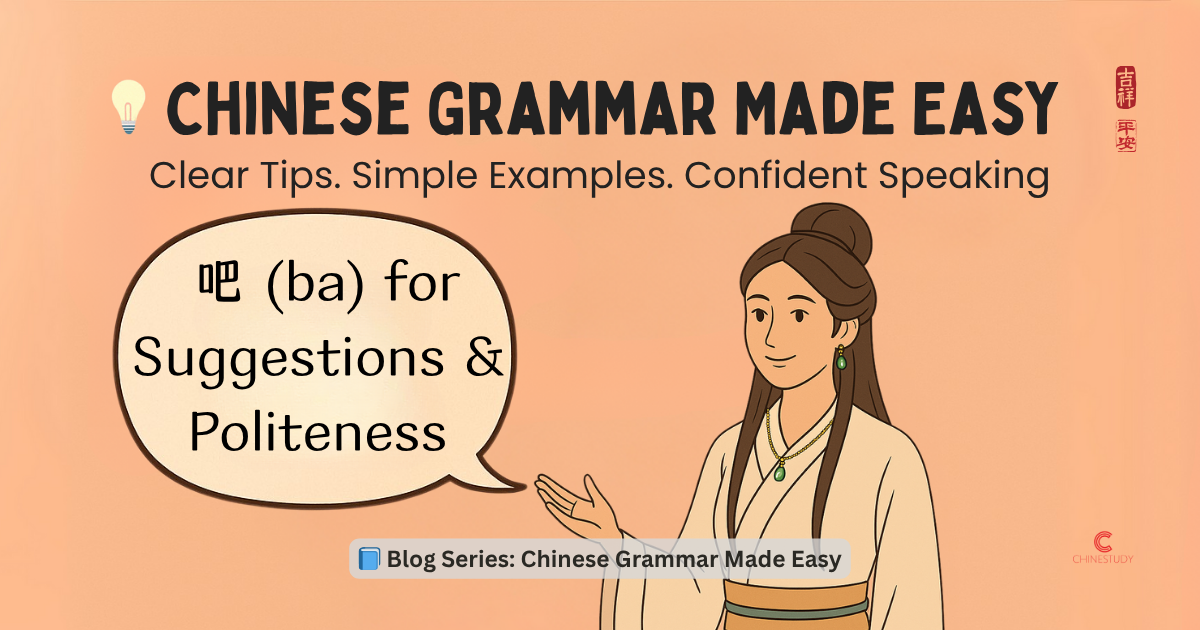
📝 How to Use 吧 (ba) in Chinese for Suggestions and Polite Sentences
Learn how to use 吧 (ba) in Chinese to sound more polite and natural when making suggestions, soft questions, and polite requests. Clear examples and easy practice inside.
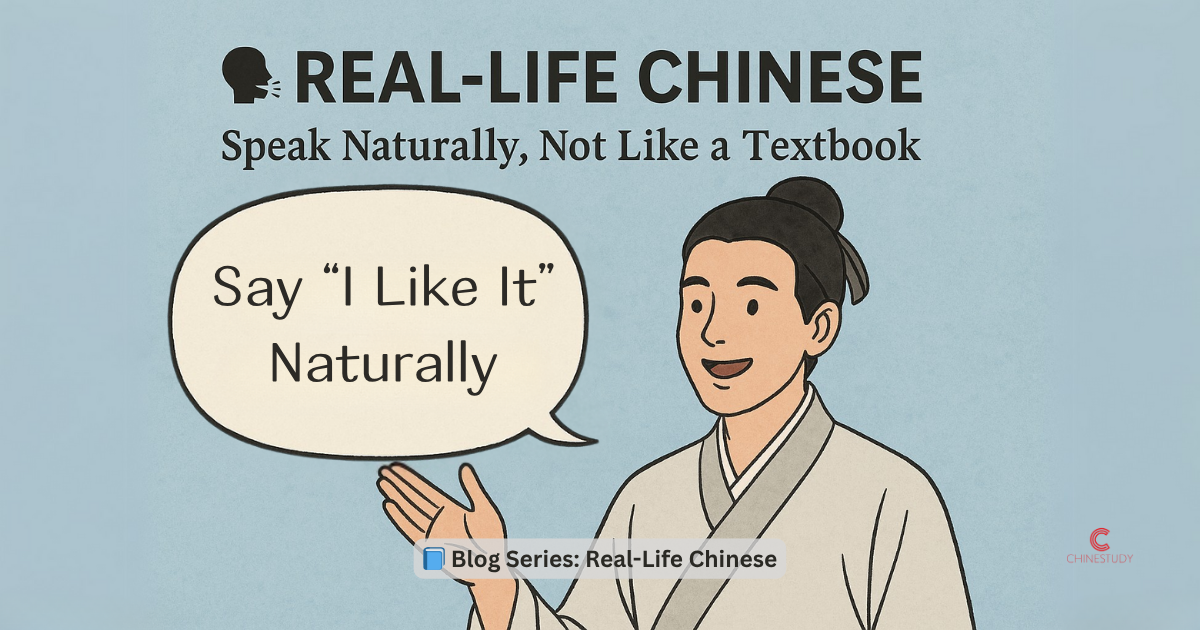
How to Say “I Like It” Naturally in Chinese — Not Just “我喜欢”
“I like it” in Chinese isn’t always “wǒ xǐhuan.” Native speakers use softer, more natural phrases like tǐng xǐhuan de, mán xǐhuan de, and hái mán xǐhuan de to sound more casual and real.
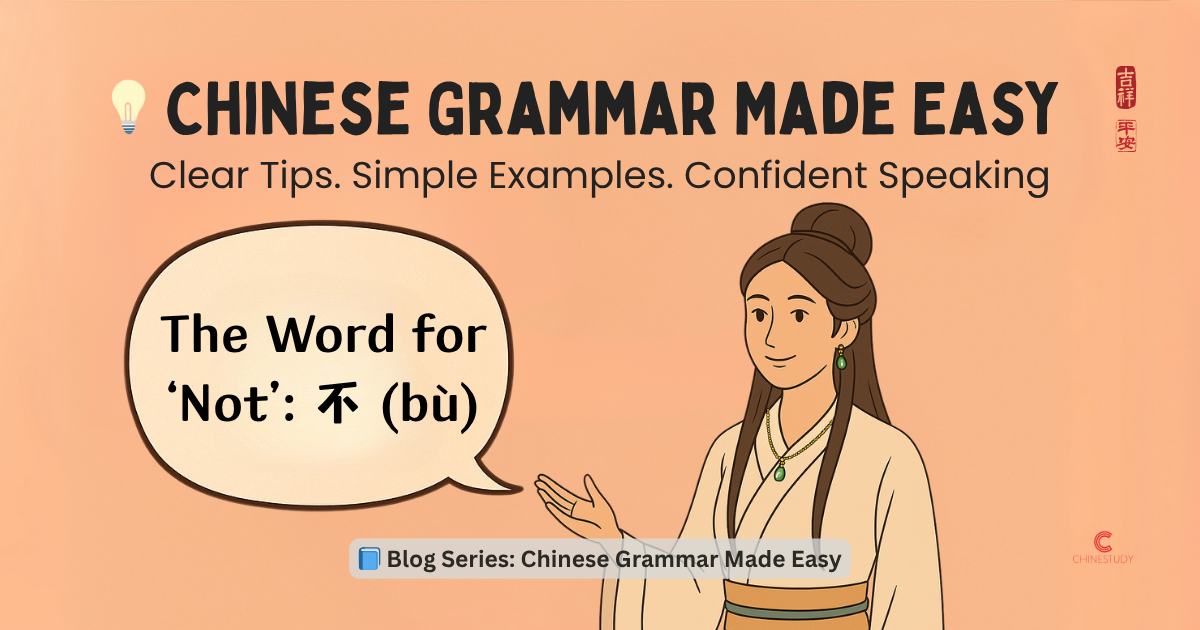
How to Use the Word for “Not” in Chinese: 不 (bù)
Learn how to use the negative word 不 (bù) in Chinese to say “no” or “not.” This guide shows you how to build clear negative sentences with 不 (bù), through examples and practice.
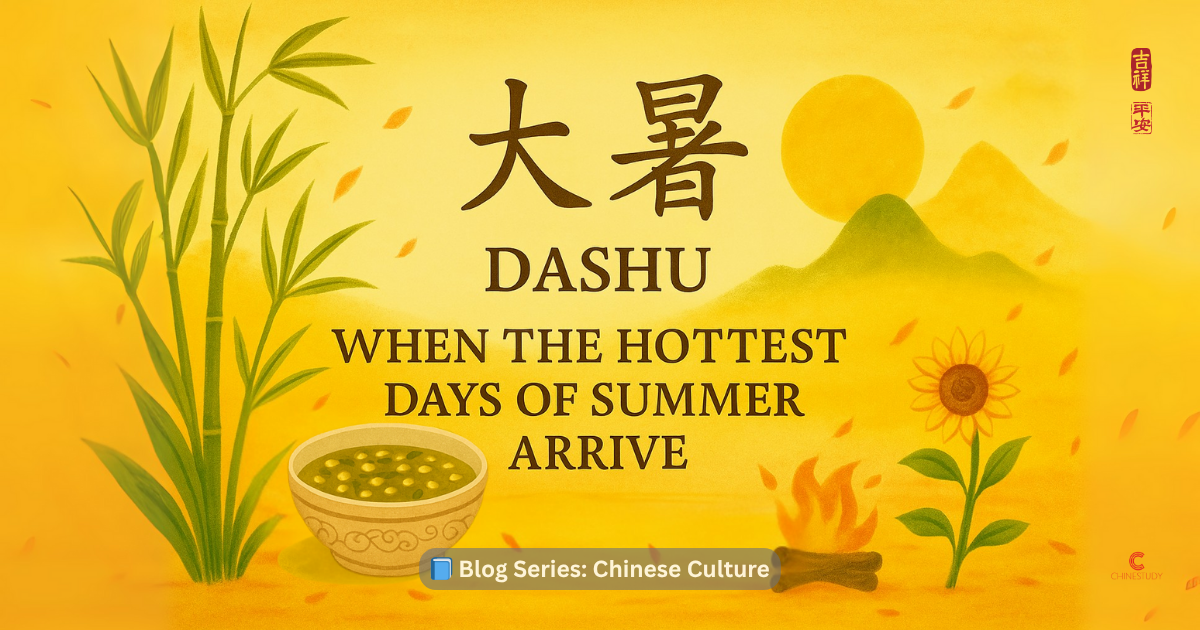
🔥 大暑 Dàshǔ – When Summer Reaches Its Peak
大暑 (Dàshǔ) marks the hottest days of summer in China. Learn how people stay cool, what foods help, and why this solar term teaches us about balance.
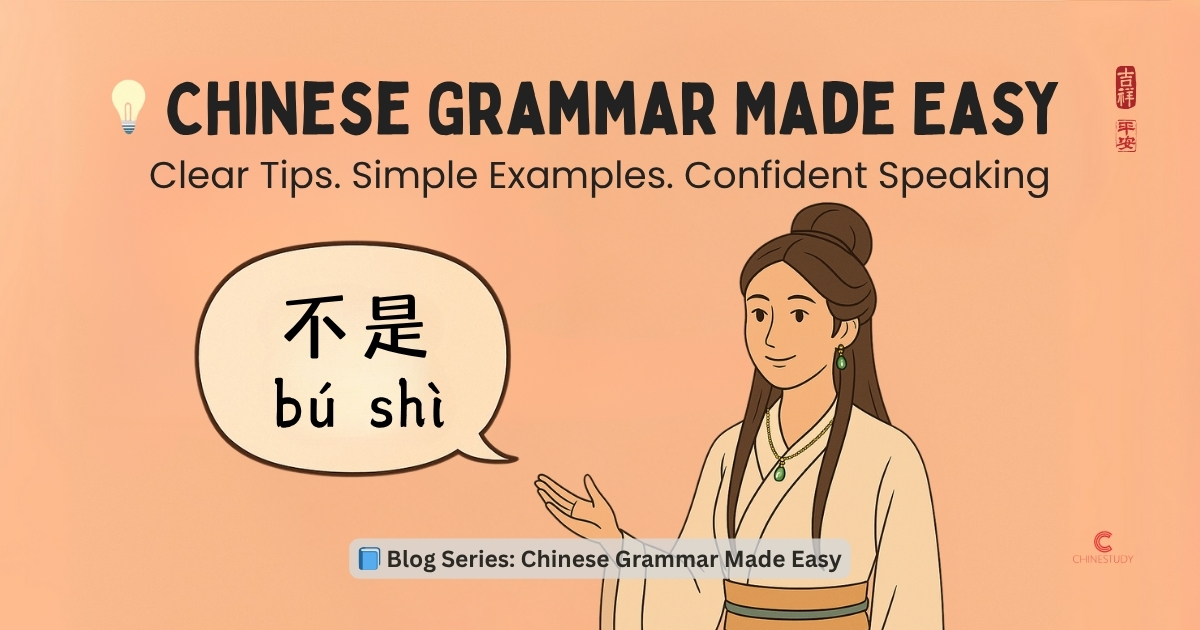
How to Say “Not” in Chinese: Using 不是 (bú shì)
Learn how to say “not” in Chinese using 不是 (bú shì). This simple and clear guide shows you how to build negative sentences in Chinese through examples and practice.
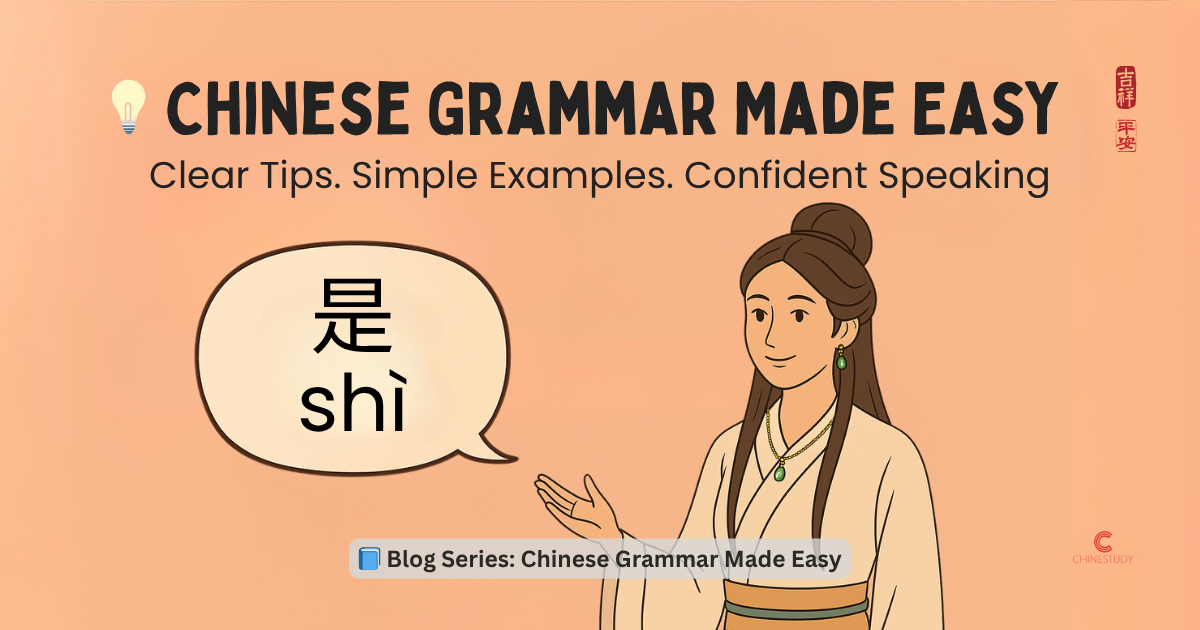
📝 How to Use 是 (shì) for “To Be” in Chinese
Learn how to use 是 (shì) for “to be” in Chinese. This simple guide shows you how to build clear sentences like “I am a teacher” using this essential grammar point.
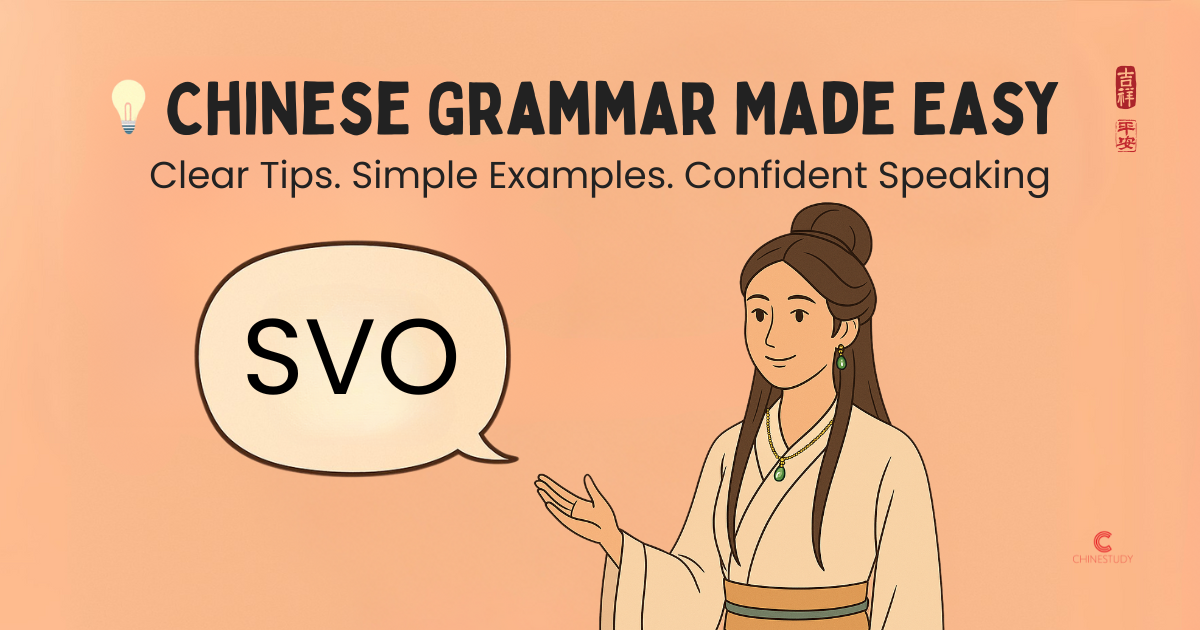
📝 How to Build a Chinese Sentence: Subject + Verb + Object
Learn the most important Chinese sentence structure: Subject + Verb + Object. This clear, step-by-step guide shows you how to build simple, natural sentences in Chinese with ease.
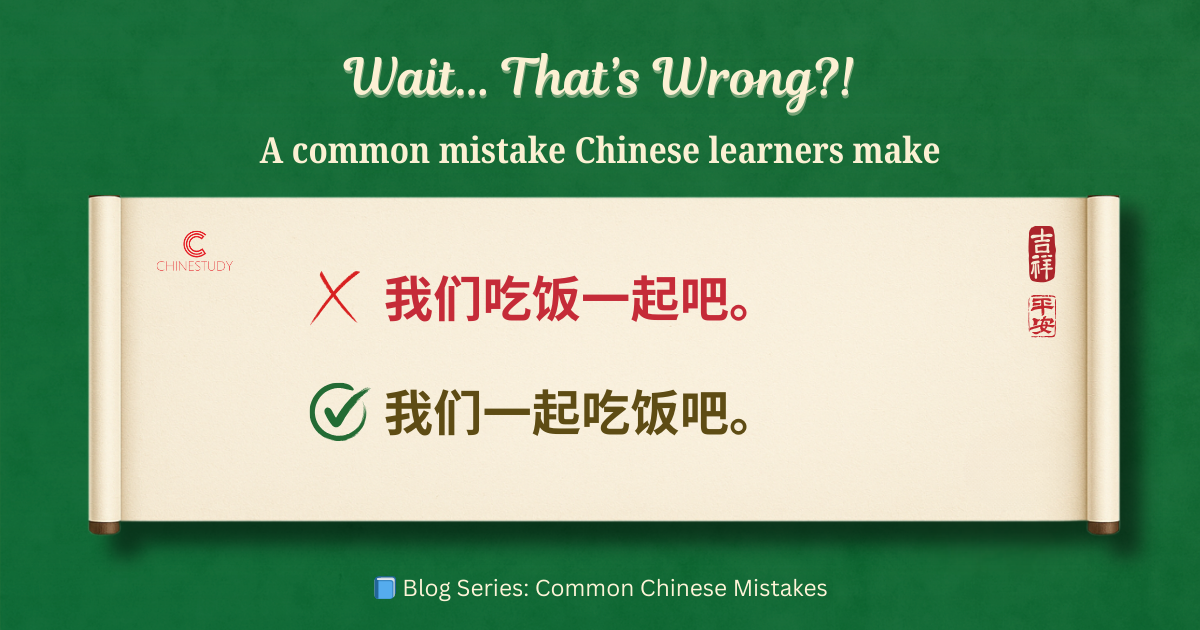
😅 我们吃饭一起吧 – Wait… That’s Wrong?!
In Chinese, “一起” (yìqǐ – together) doesn’t go at the end of the sentence like in English. Learn the correct placement of 一起 and stop making this common mistake!
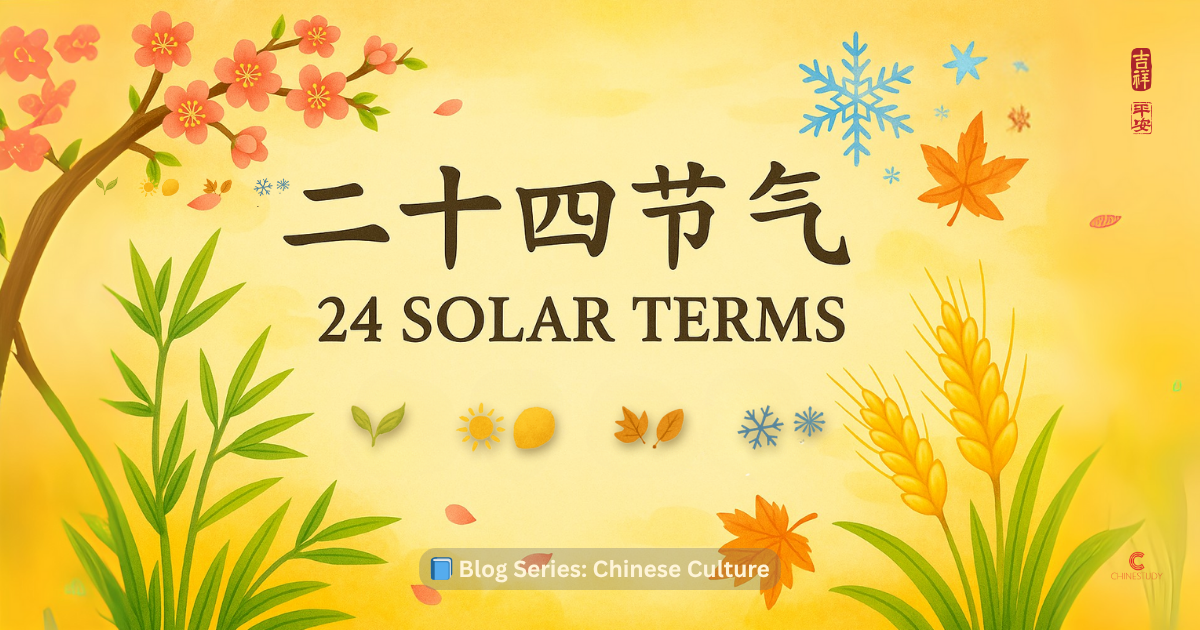
🌿 二十四节气 – The 24 Solar Terms in Chinese Culture
Learn what the 24 solar terms (二十四节气) are and how they help shape Chinese daily life, language, and traditions. A beautiful guide to understanding the seasons in Chinese culture.